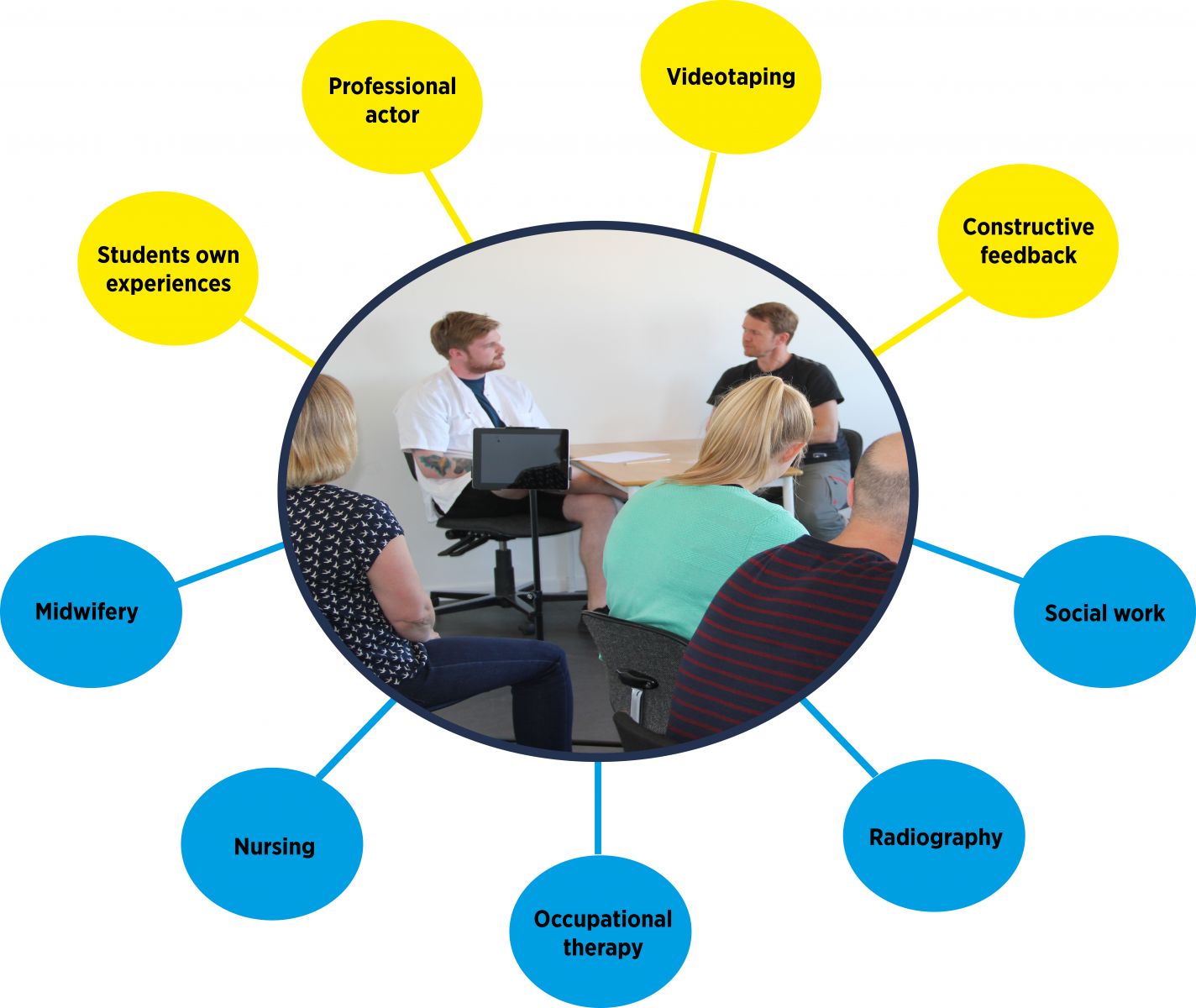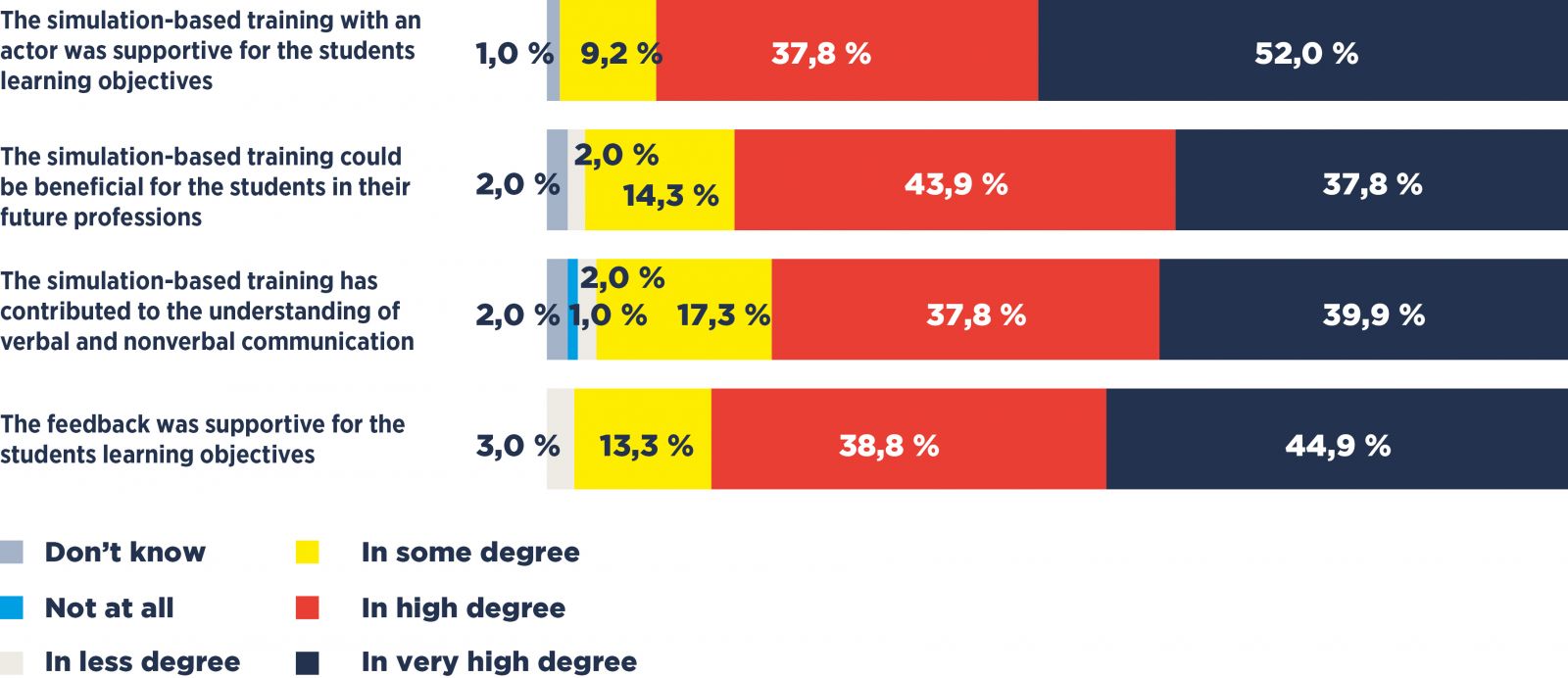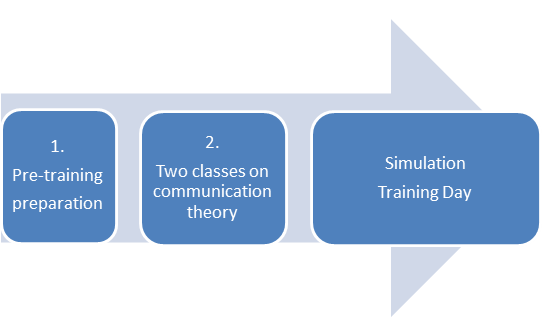


Theme
9AA Teaching and assessing communication skills
INSTITUTION
Metropolitan University College - Copenhagen - Denmark
Introduction
Communication is one of the major challenges in interactions between the lay public and healthcare professionals. Quality of healthcare delivery requires effective communicators.
Purpose
Development of an innovative learning method using simulation-based training to enhanced communication skills within professional conversations.

What was achieved?
The students stated that the simulation-based training with a professional actor was very authentic, motivating and instructive and enabled them to practice “real world communication”.
Due to the positive response from students, this training has been incorporated into the regular curriculum of some of the healthcare professional programs.

What was done?
The project team has developed, tested and evaluated a communication training module for healthcare professional students.
The Communication Training in three steps:

98 students from five healthcare professional degree programs have participated in a simulation-based training on professional conversations with the involvement of the students' own experiences, an actor, videotaping and constructive feedback from both students and facilitator.
“It is important and very instructive to see yourself on video, reflect on the conversation, and receive feedback on what has been done"
An occupational therapy student
Take-home message
Simulation-based training in professional conversations with an actor provides an authentic and motivating educational opportunity with great potential for knowledge and skills transfer to future healthcare professions.
“It was very authentic and realistic. It is an excellent training.”
A radiography student
Alrø, Helle et Kristiansen, Marianne. Et dialogisk perspektiv. I Nielsen, Mette., S., et Rom, Gitte. Perspektiver på kommunikation i sundhedsfaglige professioner. (2006).
Illeris, Knud. Transfer of learning in the learning society.(2009)
Kirkpatrick. D. Evaluating training programs, The four levels. (2006)
Thistlethwaite, Jill et Ridgway, George. Making it real – A practical guide to experiential learning. (2006)
 Send Email
Send Email